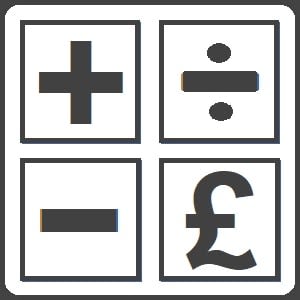Tax Guide for Programmer, App Developer, Web Designer, IT Freelancer

Self-Employed Web Design/ Programmer: Do I Need to Pay Taxes?
As a self-employed web designer or programmer, it is crucial to understand the regulations regarding tax reporting and expenses. Whether you are working full-time or part-time as a freelancer, this article will help clarify the tax reporting matters and issues you should pay attention to.
Income and Expenses
As a self-employed individual, you are required to report all income received from clients to HMRC. This income includes the fees earned for providing web design, programming, website maintenance, and other related services. Regardless of whether you receive cash or bank transfers, you must report your income accurately.
On the other hand, reasonable business expenses can be deducted from your taxable income. As long as the expenses are "wholly and exclusively for business purposes," you can use them to reduce your taxable profits. Common expense items include:
- Computers, software, and development tools
- Website hosting fees and domain registration fees
- Office equipment related to the business (e.g., printers, desks, chairs)
- Mobile phone and internet expenses
- Marketing and advertising costs
Starting Your Self-Employed Business
Before starting a web design or IT development business, you must register as self-employed with HMRC and submit an annual Self Assessment tax return. The tax return should include all income and deductible expenses, and this process will determine your final income tax and National Insurance (NI) contributions.
Invoicing and Defining Clients
Self-employed individuals need to issue invoices to clients for the services provided; this is an important step in recording income. Each invoice should include accurate information such as the date, service details, amount, and your Unique Taxpayer Reference (UTR). As a service provider, you are a professional offering services, not an employee of your clients, and you are responsible for your own business and finances.
Who is an Employer and Who is an Employee?
As a self-employed web designer, you are your own boss and not an employee of your clients. If you regularly provide services to the same client each month, you may need to consider employment status issues (employee vs. self-employed). Generally, as a self-employed person, you assume certain business risks and make business decisions, such as determining when and where to complete your work, and you are responsible for the profits and losses of your business.
Working from Home
If you work from home, you can claim a "Use of Home" deduction for a proportionate share of household expenses such as utilities, internet, and even rent, provided that the expenses are reasonable and related to your business. For example, if one room in your home is dedicated to work, you can deduct a corresponding proportion of the expenses based on the area.
Part-Time Work and Trading Allowance
If your web design work is part-time and your annual income is less than £1,000, you can apply for the "Trading Allowance," which allows you to avoid the obligation to report your income. However, if your income exceeds £1,000, you must report your actual earnings.
Allowed Expenses and Deductions
When reporting taxes, self-employed individuals can deduct certain reasonable and necessary business expenses to reduce taxable profits. Common deductible expenses include:
- Travel costs (if incurred for work-related travel)
- Business insurance
- Training costs (e.g., learning new skills or continuing education)
- Professional membership fees and subscriptions
These expenses must be directly related to the business and cannot be claimed as personal expenses.
Hiring Others
As a self-employed individual, you have the right to hire others to help with your business, but you need to be aware that you must report employee taxes and National Insurance for them. This involves more complex tax procedures, so if you decide to hire employees, it is advisable to consult a professional accountant for assistance.
Preparing Accounts
As a self-employed person, it is essential to prepare your own accounts. You need to keep records of every income and expense and maintain all receipts and invoices as evidence for tax reporting. Keeping detailed accounts can help you calculate your tax liabilities more accurately and assist you in dealing with any tax audits in the future.
In summary, working as a self-employed web designer or IT developer in the UK requires careful consideration of income, expenses, tax, and legal issues. Being well-prepared in advance can ensure the smooth development of your business and help you avoid unnecessary tax complications.
#WebDesigner #AppDeveloper #Programmer #ITfreelancer #WebpageDeveloper #SoftwareDeveloper #UKTax #SelfEmployed #LimitedCompany #TaxReturn #VATRegistration #BusinessExpenses #InternationalIncome #TaxCompliance #AccountingTips #TaxGuide
Contact Us
Send a Message
Get in touch to discuss with us how we can best assist you.
